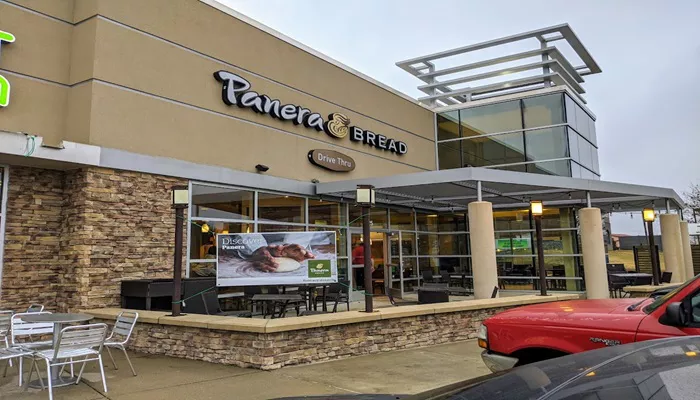Panera Bread is a well-known fast-casual restaurant chain in the United States. It specializes in fresh-baked bread, sandwiches, soups, and salads. With a focus on high-quality ingredients and a welcoming atmosphere, Panera has built a strong reputation in the restaurant industry.
For entrepreneurs interested in owning a franchise, Panera Bread offers a promising business opportunity. However, potential franchisees often wonder how much they can earn from this investment. In this article, we will explore the financial aspects of owning a Panera Bread franchise, including revenue, expenses, and profitability.
Initial Investment and Franchise Costs
Before discussing potential earnings, it’s important to understand the costs associated with opening a Panera Bread franchise. Like any franchise business, there are significant startup costs. These include:
Franchise Fee: The initial franchise fee for Panera Bread is around $35,000.
Total Investment: The total investment required to open a Panera Bread franchise typically ranges from $1 million to $2.5 million. This includes expenses such as real estate, construction, equipment, and initial inventory.
Ongoing Fees: Franchise owners must pay ongoing royalty fees, typically 5% of gross sales, and contribute to national marketing fees, which are around 2% of gross sales.
Average Revenue of A Panera Bread Franchise
Revenue varies by location, customer traffic, and market demand. However, industry reports estimate that the average annual revenue of a Panera Bread franchise ranges between $2 million and $3 million per location.
Factors Affecting Revenue
Several factors influence the revenue potential of a Panera Bread franchise:
Location: High-traffic areas, such as shopping centers and urban locations, tend to generate higher sales.
Market Demand: Areas with a strong demand for fast-casual dining have higher earning potential.
Operational Efficiency: Well-managed franchises with efficient staff and excellent customer service tend to perform better.
Menu Expansion: Limited-time offers and seasonal menu items can boost sales.
Delivery and Online Orders: With the rise of food delivery services, online and mobile orders contribute significantly to revenue.
Operating Costs and Expenses
While Panera Bread franchises generate high revenue, they also incur significant expenses. These costs include:
Food and Beverage Costs: Ingredients and supplies typically account for 25% to 35% of total revenue.
Labor Costs: Employee wages, benefits, and training can take up 25% to 30% of revenue.
Rent and Utilities: Leasing a prime location can be expensive, with costs varying by city and region.
Marketing Fees: Franchise owners contribute to national advertising campaigns and local promotions.
Maintenance and Equipment: Regular upkeep of kitchen equipment and dining areas is necessary.
Profit Potential for A Panera Bread Franchise Owner
After deducting expenses, the profit margin for a Panera Bread franchise typically falls between 10% and 15% of total revenue. Based on the average revenue range, here’s an estimate of potential earnings:
Low-End Revenue ($2 million):
Profit (10% margin): $200,000 per year
Profit (15% margin): $300,000 per year
High-End Revenue ($3 million):
Profit (10% margin): $300,000 per year
Profit (15% margin): $450,000 per year
These figures indicate that a successful Panera Bread franchise can be highly profitable. However, actual earnings depend on various factors, including location, management, and economic conditions.
Challenges of Owning a Panera Bread Franchise
While owning a Panera Bread franchise can be rewarding, it comes with challenges:
1. High Initial Investment
The cost of opening a Panera Bread franchise is higher than many other fast-food chains, making it a significant financial commitment.
2. Competition
The fast-casual dining industry is highly competitive, with major brands like Starbucks, Chipotle, and McDonald’s offering similar products.
3. Labor Costs
Hiring and retaining skilled employees can be difficult, especially in areas with a competitive job market.
4. Operational Demands
Running a restaurant requires hands-on management, long hours, and attention to detail.
Is A Panera Bread Franchise A Good Investment?
For entrepreneurs with the required capital and experience in restaurant management, a Panera Bread franchise can be a profitable investment. The brand has a loyal customer base, a strong reputation, and a proven business model. However, success depends on choosing the right location, managing costs effectively, and maintaining high-quality service.
Conclusion
Owning a Panera Bread franchise offers a promising opportunity for business owners looking to enter the fast-casual dining industry. While the initial investment is high, the potential for revenue and profit makes it a worthwhile venture. With careful planning and effective management, franchise owners can achieve strong financial success in this well-established brand.
Related topics:
- Is Wendy’s Taco Salad Healthy?
- When Will The Enchirito Be Back at Taco Bell?
- When Does Taco Bell Serve Nacho Fries?

